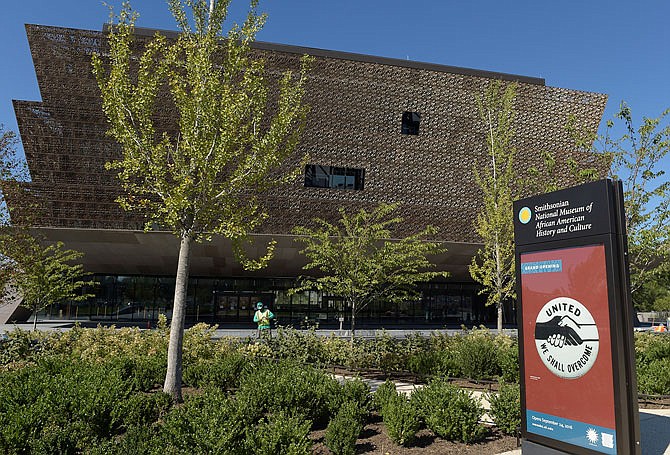ATLANTA (AP) - The National Museum of African American History and Culture opens in Washington this weekend aiming to tell the story of black people in the U.S., yet visitors will find few personal mementos from one of the most famous and influential black Americans, the Rev. Martin Luther King Jr.
King is certainly there in photos and film clips. His fraternity membership card and posthumously awarded Presidential Medal of Freedom are there, along with a bucket he's said to have soaked his feet in during the civil rights march from Selma to Montgomery.
But there are none of his hand-scrawled speeches and notes, well-worn suits or personal keepsakes. King's estate, controlled by his three surviving children, owns and controls much of the slain civil rights leader's memorabilia.
The museum, part of the Smithsonian, didn't respond to repeated requests from the Associated Press for comment for this story. Museum director Lonnie Bunch told the Washington Post the institution wants things it can keep rather than loaned items.
The newspaper reports Rex Ellis, the museum's associate director of curatorial affairs, and other museum officials were invited to Atlanta in January by King's children to look at his traveling Bible, but the meeting ended without any promises.
Phillip Jones, general manager and COO of the King estate, said museum officials were invited because the estate was considering loaning memorabilia. However, he said they later learned the museum wasn't interested in loans. Jones said he wasn't sure whether the estate would be willing to donate anything.
King's Bible, along with his 1964 Nobel Peace Prize medal, were then the focus of an ownership dispute pitting King's two sons against his surviving daughter.
The brothers wanted to sell the items to an undisclosed buyer while their sister said they were too precious to sell. Former President Jimmy Carter helped mediate. The parties last month announced a confidential settlement, and the judge ordered the items released to the estate. What will happen to them hasn't been made public.
King's estate has closely guarded his legacy and how his words, image and other intellectual property are used. It hasn't been shy about suing media outlets or others perceived as infringing those rights, including some of King's close associates.
King's heirs also have been willing to part with some memorabilia for a price. They sold a collection of more than 10,000 of his personal papers and books in 2006 for $32 million, a collection now housed at Morehouse College, King's alma mater.
David J. Garrow, whose book "Bearing the Cross: Martin Luther King, Jr., and the Southern Christian Leadership Conference" won the 1987 Pulitzer Prize for biography, has often criticized the King heirs' attempts to profit from his legacy and the legal disputes that have divided them, but he said the museum created a difficult dynamic if it won't take loans.
"I would certainly not expect the King children, the King estate, to simply give the Bible or the Nobel prize to any museum absent the sort of payments we've seen in the past," he told the AP. "But I think there would be a whole lot more room for discussion if an institution was open to loan or deposit."
Jones, the estate general manager, said much of the estate's memorabilia is already loaned out to various places, including Atlanta's airport, the Martin Luther King Jr. Historic Site operated by the National Park Service in Atlanta and the King Center. Many of the items have been on loan for decades, he said.
Former United Nations Ambassador Andrew Young, who worked alongside King during the civil rights movement, said even without many significant King artifacts, King is still very present at the new museum.
"The museum is in his shadow," Young said, referring to the monument to King on the National Mall that was dedicated in 2011. "That's enough. You don't have to worry about him being missed."
Robert Franklin, a professor at Emory University's Candler School of Theology, was president of Morehouse College right after the collection of King papers arrived. When asked what he'd like to see in the museum, he mentioned a display the Atlanta airport. It includes a briefcase King used to carry his Bible, books and papers. That was loaned to the airport more than 30 years ago by King's wife, Coretta Scott King, airport spokesman Reese McCranie said.
"I just thought it always gave a clue to an active mind and the kind of mind we're trying to cultivate in America's colleges and universities," he said.
Garrow, the historian, said he thinks it's most important for museum visitors to hear King's words, and not just the famed "I Have a Dream Speech."
"I wouldn't want some briefcase, old suit, speech outline," he said. "I'd want people to hear the voice and to hear the voice in an oration where he's really emotionally involved."

